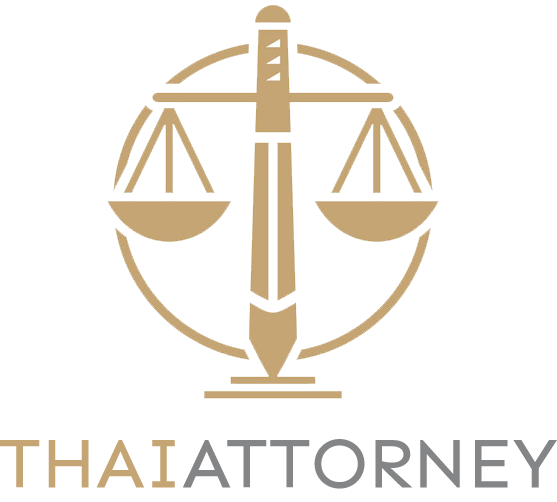Thailand’s legal system is rooted in the Civil Law tradition, influenced by Western legal systems and codified statutes. Within this framework, disputes and offenses generally fall under two major categories: civil cases and criminal cases. While both types of cases are resolved through the judicial system, they differ significantly in purpose, procedures, penalties, and the parties involved. Understanding these differences is essential for individuals and businesses navigating legal matters in Thailand, as each type of case requires different strategies, evidence, legal rights, and potential outcomes.
This article explores in detail the key differences between civil and criminal cases in Thailand and how each is processed through the Thai judicial system.
1. Purpose of the Case
Civil Cases
Civil cases deal mainly with disputes between private individuals, organizations, or companies. These cases arise when one party believes another has violated their rights or obligations, causing financial loss, property damage, or breach of contract. The main purpose of civil cases is to:
-
Compensate the injured party
-
Enforce contractual obligations
-
Resolve disputes fairly
-
Restore rights or property
Civil cases are not intended to punish the wrongdoer but to repair the harm done.
Criminal Cases
Criminal cases involve offenses considered harmful to society, public order, or the state. These offenses are prosecuted by the government, regardless of whether the victim wishes to pursue charges. The primary purposes of criminal law are to:
-
Punish offenders
-
Protect society
-
Maintain public order
-
Deter criminal behavior
Criminal cases aim to punish and rehabilitate rather than to compensate the victim.
2. Parties Involved
Civil Cases
Civil cases involve two main parties:
-
Plaintiff: the person or entity initiating the lawsuit
-
Defendant: the person or entity being sued
Both parties are private individuals or legal entities. The government is typically not involved unless it is itself a party to the dispute.
Criminal Cases
In criminal proceedings, the parties are:
-
Public Prosecutor (or State): representing the government
-
Defendant: the accused person
The victim may act as a co-plaintiff, but the primary authority rests with the state. This highlights that the offense is not only against an individual but against society as a whole.
3. Standard of Proof
Civil Cases
Civil cases use the standard of preponderance of evidence or “more likely than not.” This means the plaintiff must prove their claim with enough evidence to show that their version of events is more probable than the defendant’s.
Criminal Cases
Criminal cases require proof beyond a reasonable doubt, the highest legal standard. Because criminal penalties can include imprisonment, fines, and other severe punishments, the burden of proof on the prosecution is significantly higher.
4. Type of Wrongdoing
Civil Wrongdoing
Civil cases revolve around:
-
Breach of contract
-
Negligence or personal injury
-
Property disputes
-
Family disputes (e.g., divorce, child custody)
-
Inheritance disputes
-
Commercial conflicts
These disputes typically involve harm to a person’s property, financial interests, or rights.
Criminal Wrongdoing
Criminal offenses include actions harmful to society, such as:
-
Theft, robbery, and burglary
-
Assault and murder
-
Drug offenses
-
Fraud and forgery
-
Drunk driving
-
Cybercrime
-
Human trafficking
-
Corruption
Crimes are categorized under various Thai laws including the Thai Criminal Code and special laws such as the Narcotics Act, Traffic Act, and Computer Crime Act.
5. Penalties and Remedies
Civil Cases
Civil cases do not involve criminal penalties. Instead, remedies are generally financial or administrative in nature:
-
Monetary damages
-
Compensation for losses
-
Contract enforcement
-
Injunctions
-
Return of property
-
Specific performance
The goal is to restore the injured party to the position they were in before the dispute.
Criminal Cases
Penalties for criminal cases can be severe, depending on the type of crime. Common penalties include:
-
Imprisonment
-
Fines
-
Probation
-
Community service
-
Suspension of rights (e.g., driver’s license)
-
Confiscation of assets
-
Death penalty (rare and limited to extreme cases)
The punishment seeks to deter crime, protect society, and correct offenders.
6. Filing the Case
Civil Cases
A civil case can be filed directly by the aggrieved party through:
-
The Civil Court
-
The Provincial Court
-
Specialized courts (e.g., Family Court, IP & IT Court, Labor Court)
The plaintiff typically hires a lawyer to prepare the complaint.
Criminal Cases
Criminal cases begin either by:
-
Police investigation, followed by prosecution by the state, or
-
Direct complaint to the Criminal Court by the victim
However, most serious crimes start with a formal police report, leading to investigation and prosecution.
7. Court Procedures
Civil Trials
The process usually includes:
-
Filing a complaint
-
Defendant submits a response
-
Evidence and witness preparation
-
Mediation (mandatory in many cases)
-
Trial
-
Judgment
-
Appeal (if applicable)
The pace of civil cases depends on the complexity of the dispute.
Criminal Trials
Criminal procedures typically involve:
-
Police investigation
-
Arrest (when necessary)
-
Detention or bail
-
Indictment by the prosecutor
-
Trial
-
Sentencing
-
Appeal
Criminal cases involve stricter procedures because the defendant’s liberty is at stake.
8. Burden of Proof
Civil Cases
The plaintiff carries the burden of proof. They must provide sufficient evidence to convince the judge that the defendant is responsible for the harm or breach.
Criminal Cases
The burden is primarily on the prosecution, which must prove the defendant’s guilt beyond reasonable doubt. The defendant is presumed innocent until proven guilty.
9. Role of Mediation
Civil Cases
Mediation is strongly encouraged and often required before trial. Many civil disputes settle during mediation, saving time and resources.
Criminal Cases
Mediation is limited but possible for minor offenses such as:
-
Defamation
-
Minor assault
-
Property damage
Serious crimes like murder or drug offenses cannot be mediated.
10. Right to Compensation
Civil Cases
Compensation is the primary remedy, awarded directly to the injured party.
Criminal Cases
Victims may receive compensation through:
-
A separate civil lawsuit
-
A compensation order attached to the criminal case
However, compensation is secondary to the goal of punishment.
Conclusion
Civil and criminal cases in Thailand serve distinct purposes and follow different legal frameworks. Civil cases aim to resolve disputes between private parties and provide compensation or enforcement of rights, while criminal cases seek to punish and deter behavior harmful to society. They differ in their parties, procedures, penalties, standards of proof, and legal outcomes.
Understanding these differences helps individuals and businesses make informed decisions when facing legal issues and ensures they pursue the correct legal remedies. Whether dealing with a business dispute, a family matter, or an allegation of a criminal offense, knowing the proper legal path is essential to protecting one’s rights and navigating the Thai justice system effectively.

